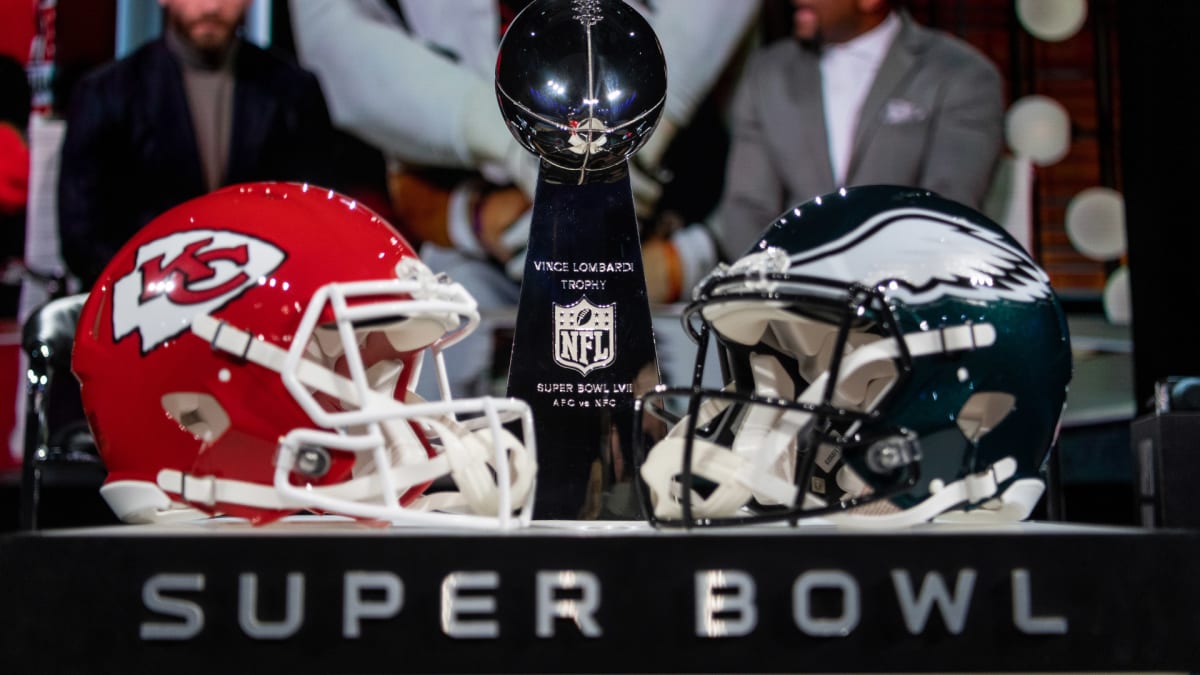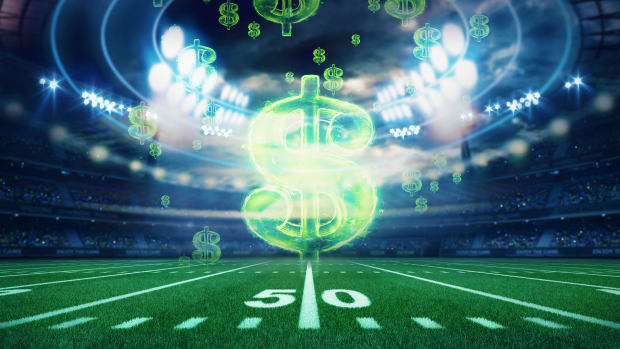
On Sunday, Feb. 12, the Kansas City Chiefs will play the Philadelphia Eagles in Super Bowl LVII in Glendale, Ariz.
Current Caesars Sportsbook odds list the National Football Conference's (NFC) Eagles as 1.5-point favorites to win the contest.
Patrick Mahomes of the American Football Conference's (AFC) Chiefs is listed as the current favorite, however, to win the Most Valuable Player award.
For those inclined to gamble on the big game, there are other bets available as well. You can place a wager, for example, on whether the coin toss will be heads or tails or what color the Gatorade will be that gets dumped on the winning coach's head.
You can also bet on the exact number of seconds it will take country music star Chris Stapleton to sing the national anthem before the game.
Those that take risks on bets for a living -- meaning, of course, investors in the stock market -- know that the winner of the Super Bowl has a historical correlation with the performance of stocks. And Wall Street will likely be rooting for Philadelphia.
"The Super Bowl Indicator suggests stocks rise for the full year when the Super Bowl winner has come from the original National Football League (now the NFC), but when an original American Football League (now the AFC) team has won, stocks fall," writes The Carson Group.
According to Carson's data, in the previous 56 Super Bowl years, there have been 40 years where the S&P 500 (^IN) has been up for the full year and 16 years when it has been down.
In the 40 positive years, the NFC team has won 22 times and the AFC team has won 18.
In the 16 negative years, the NFC team has won 7 times and the AFC team has won 9.

During that 56-year span, in an average year, the S&P 500 has gained 8.5% for the year.
When the NFC team wins the Super Bowl, the index is up 10.0%. When the AFC team wins, it is up only 6.9%.
Breaking it down by the two teams playing this year, however, there is a break in the trend.
"The Chiefs have won twice and stocks gained 8.5%, about average, while when the Eagles won in 2018, stocks finished lower for the year," Carson writes.







